#LOOK MIKE FLANAGAN HAS MY FUCKING SOUL OKAY
Explore tagged Tumblr posts
Text
Did I just binge an entire 8 hour series in one day? Um... Yes...
#personal ramblings#LOOK MIKE FLANAGAN HAS MY FUCKING SOUL OKAY#anyway highly recommend the fall of the house of usher#it was incredibly well done and also heartbreaking as his stuff always is#need to scream about it
2 notes
·
View notes
Text
Okay Non-Spoiler Review
So I am gonna put this under a cut because it might get a bit long but yeah i’ll keep it spoiler-free and if you’ve been following my liveblogging of it i am gonna just re-iterate bits of old text posts during this so ye
So The Haunting of Hill House was fucking amazing. Let’s get this out of the way first though: If you come in looking for an adaptation of Shirley Jackson’s novel or the ‘63 film, you’re going to be disappointed. Or the ‘99 film, but if you want an adaptation of that, you’re a monster and may God have mercy on your soul.
Characters share names, very famous scenes are referenced, the opening line of the book is quoted almost verbatim and re-visited at the end with a twist like the film (although not the same twist but i shan’t spoil), and it involves psychic characters in a haunted house. That’s about it, though.
This story focuses on the Crain family, who were the spooky background story family in the OG, and completely changes their mythos as well. So the characters are all related, they live there as kids and don’t actually go back as adults until just about the end, and it’s dealing with their grief and trauma and dysfunction that drives them, not any kind of experiment in the supernatural.
No, what this show has much more in common with is Oculus. I know I’ve said this repeatedly but I can’t stress it enough. The Haunting of Hill House literally has more in common with Oculus than it does with the novel it takes inspiration from. Similar cinematography, similar style ghosts, same flipping between past and present, similar eldritch abomination disguised as inanimate thing villain fucking with perceptions of time and reality...The Haunting of Hill House really is more a re-imagining of Oculus than a re-imagining of The Haunting of Hill House.
Now that’s all just to address people’s expectations, though. Once again, if I had expected a re-imagining of Oculus, I wouldn’t have said no, because Oculus was the big dog’s biscuit. For those not in the know, it’s about a brother and sister whose parents went crazy when they were kids, their dad killed their mom, and then the little brother had to kill the dad in self-defense. He’s spent years in a mental hospital and chalked everything up to mental illness and an evil father, while his older sister is convinced the mirror they had just purchased was evil and drove their parents to do what they did. Zombie ghosts with glowing white eyes and mind-fuckery ensue. If you’re reading this after starting or even finishing THOHH, you may perhaps notice that sounds awfully familiar.
Oculus was actually an expansion of/improvement on a short film Mike Flanagan made, which you can find on youtube. I’d argue THOHH is an analogous expansion of/improvement on Oculus.
The thing with Oculus is it had problems. Because of the power of the mirror, basically from the moment they enter their old house until the end of the movie, the thing’s illusions are so strong that there is no way of knowing what’s really happening. Audiences complained that it’s hard to get invested in a plot when you’re not sure how much of the plot is actually happening or when it’s happening, in the past or present. Flashbacks and the present narrative blended together in very artistic and jarring ways, but some people found it too jarring, hard to keep track of, nonsensical. Additionally, things were a bit rushed, and there wasn’t enough room for Flanagan to really let some of his more complex concepts for the plot and the scares breathe.
Thankfully, in THOHH, Flanagan seems to have really actually taken those critiques to heart. There are characters largely unaffected by what’s going on, and the sequence of events never truly gets cluster-fucked. It’s a much more coherent narrative. In Oculus, a big complaint was things were too muddled to tell if the rug was actually being pulled out from under you and where the rug was to begin with and whether there was a rug in the first place. There is no fucking question in Hill House.
Additionally, the 10-episode set-up means that he can go absolutely wild with everything he wants to do, and it fucking shows.
In Oculus, one of the most disturbing scares was a brief flicker on the TV. A split instant that showed the adult sister, mouth open and dripping blood, dead and vacant stare in her eyes, for less than a second. On the TV the younger brother was watching as a child in the past. It was truly unnerving. Something similar happens when they pass the cameras at one point that they’re using to record the mirror, just showing creepy pictures of her face. But those are the only two really good easter egg background scares that could fit in that movie. There was much more right up in your face.
Not so in Hill House. Hidden ghosts and unsettling details are EVERYWHERE. Not even just the now-famous easter egg ghosts. There are also obvious ghosts in the background that seem like jump scares waiting to happen....that don’t. There are small details that change, people walking past in the background of a hallway silently, statues that turn their heads to face a character without anyone noticing it in-show. The tension is masterfully built. There are scenes that you don’t even fucking realize are scary until you see something later that completely re-contextualizes it.
It also expands on the driving concept behind Oculus, family trauma and the repeating cycle of mental illness, which wasn’t as well explored there as Flanagan clearly wanted to. But here? In all its 10 episode glory, with each child’s trauma and resulting psychological issues getting full spotlight for an hour?
It hits you hard. Flanagan’s concepts are fully realized. You get to intimately see what their childhoods have done to these characters, how history repeats itself (sometimes literally), how the ghosts-if you’ll pardon the pun-of the past drag the living of the present down. Not only that, he expands the themes he worked with in Oculus to include some downright Pet Sematary-style shit about loss, grief, and what meaning can be gleaned from death. It’s oppressively heavy, and the scares and the sadness interweave in beautiful ways. The end of one episode, which sees a maimed, anguished, silently screaming ghost standing by her own corpse, completely invisible to the assembled mourners, is both an absolutely haunting visual and an existential punch to the gut. A lot of the show is like that.
Of course this wouldn’t work if you weren’t invested in the people, but they managed to hit another home run on the characterization front. Every single character of any importance in this show is sympathetic to some degree, and even if you don’t like them, you understand why they are the way that they are. The actors are mainly relative unknowns, but i’ll be god damned if they don’t breathe life into these people. There’s also Carla Gugino who....you know. Is Carla fucking Gugino.
You can tell love and care has been put into this show. Small details almost always become important, I’m sure if I went back through with a fine-toothed comb for a second viewing, I would find a downright Edgar Wright level of foreshadowing in the earlier episodes.
There were some questions I think I still have, maybe they’d be cleared up with a second viewing, and I do want to watch this show again. I had some issues with the ending which I won’t get into here, and the show absolutely isn’t above a jump scare or six. They’re never cheap though, either coming at the end of a truly tense scene or so insanely unconventional and out-of-left-field (Anyone who’s seen Episode 8 knows what i’m talking about) that it’s noteworthy in and of itself.
Overall, it plays out like a very intense and emotionally effective family drama about trauma, grief, sickness, death, dysfunction, and love with heavy horror elements. You’ll go half an episode without any horror sometimes, making it all the more jarring when it does rear its zombified, dead-white eyed head again. This isn’t to say that the tone isn’t cohesive, like i said before, it absolutely makes it mesh together.
And yes, I did say love up there. I want to pause for a moment to tell you that all hope is not lost in this show. There are genuine moments of humor, heartwarming, and love. Yes, most of them are at best bittersweet and at worst setting you up for a cold, black sucker-punch to the heart, but it’s not all darkness and fear and death. This show has heart.
I honestly can’t say enough good things about The Haunting of Hill House. The family dynamic was realistic as hell, the characters were complex, the scares and tension were masterfully executed, the themes were intelligent, the cinematography beautiful, I cannot recommend this show enough to anyone with even a passing interest in horror.
34 notes
·
View notes
Text
The Top 25 Films of 2019

25: Shadow (dir. Zhang Yimou)
"Without the real, there can be no shadow. A principle no one's understood."
After a string of terrible films trying to play to Hollywood audiences, Zhang Yimou manages to successfully return to the goldmine he stuck in the early 2000s and craft another absolutely gorgeous wuxia. Here he swaps out the poetic, colorful beauty in favor of monochromatic, surprisingly violent tone poem about deceit. It ultimately works against it, as by the seventh or eighth double cross you kind of just give up trying to figure out who's on what side, but the main action setpiece is so wonderful it deserves a spot for that alone. Hopefully a good sign for Yimou's future, as long as we don't have another nationalist war epic that somehow inexplicably also has a white savior narrative too.
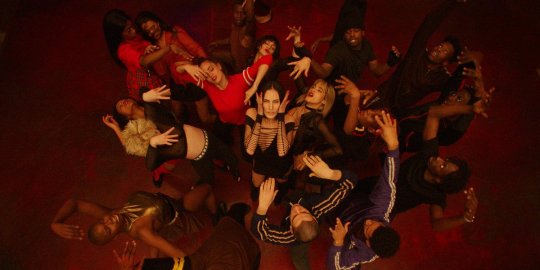
24: Climax (dir. Gaspar Noé)
"...something's kicking in..."
Noe takes us for another plunge into the dark, twisted, vomit-inducing, neon-lit hellscape that is his mind and at least has the common courtesy to put the pleasant parts upfront this time. While it will eventually devolve into the same type of chaos that we all love/hate from him, the first act is kind of a wonderful departure from him. He basically accidently makes a musical for a while, with wonderful and deeply intricate dance choreography as well as a fantastic extended sequence where every character jumps in and out of frame and gets a chance to strut their stuff. That movie would have been a strong top five contender, but alas, the man has his particular quirks that he must abide by. But at least he also strung together probably the best soundtrack and sound design of the year, with the fantastic EDM bangers rumbling through the walls throughout the entirety of the film.
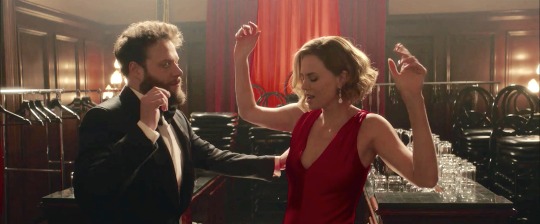
23: Long Shot (dir. Jonathon Levine)
"Oohhh boooy!"
Charlize Theron and Seth Rogen doing a political comedy that manages to be both smart and extremely funny seems like a long shot indeed, but Johnathon Levine finally strikes gold again after a number of disappointing duds. He manages to make a pretty good story about how navigating the political minefield destroys what little hope and dreams high level politicians still manage to have, but then he also happens to make it all absolutely hilarious too. Theron demonstrates a surprisingly strong comic game too, easily matching all the other talent and cracking jokes along with them. It ends up being a charming romance where the woman takes charge in a very pleasant change of pace. And if nothing else, the way Seth Rogen yells "oh boy" in that video is always going to make me laugh no matter what.

22: 6 Underground (dir. Michael Bay)
"Ghosts have one power above all others: to haunt the living. Haunt them... for what they've done."
Theoretical question: what say Netflix gave Michael Bay a blank check and no restrictions, and he turned in the most overblown, dialed to eleven, nonsensical spectacle that he ever crafted and was allowed to put it into almost every American home for free? Now what if I told you that it was actually kind of awesome? Sure, it's basically a child playing with his $150 million dollar GI Joe set, smashing his toys together and making pew-pew sounds, but it's also probably the best testament to the power of conventional effects work over the increasing insistence on CGI for big setpieces. Let's face it: explosions are pretty cool, every one likes exotic locales and bright sports cars, and there's at least someone here to appeal to you (least surprisingly for me, it was Melanie Laurent with bangs wearing a suit). It almost reaches a late Michael Mann kind of abstraction, as both are respectively breaking apart the action movie into stranger combinations. Bay gives plot only because he contractually has to, and even then doesn't seem as committed to characterization as he is showcasing surprisingly brutal ways for the gang to dispatch their enemies. It's nonsense, but the damn best nonsense of the year.
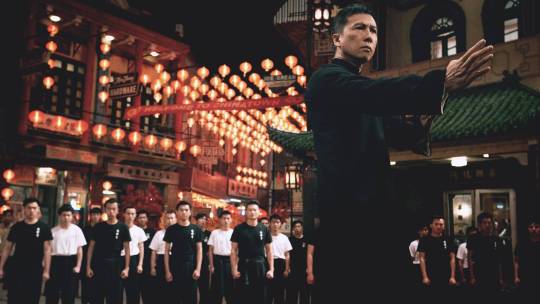
21: Ip Man 4: The Finale (dir. Wilson Yip)
"Is that it?! Is this your Chinese Kung Fu?!"
The finale in the decade-long quadrilogy of supremely silly and borderline racist worship of China finally attempts to tackle America to delightfully amusing results. Scott Adkins doing his best evil R. Lee Ermey impression while slipping in modern neo-con punchlines, neverending Bruce Lee worship, and more nationalism and bad fake American accents than you could ever believe. Yet also a more bizarrely honest portrayal of racism in 1960s America than most movies would ever have the courage to acknowledge. It’s almost fascinating considering how a lot of the non-Asian racism basically serves as set dressing, but they still put more effort there than pretty much every Hollywood movie set in the 60s that isn’t directly about civil rights. But ultimately they're selling you a bill of goods saying "watch Ip Man beat the crap out of racist meatheads" and you better believe they're going to give you what you want.
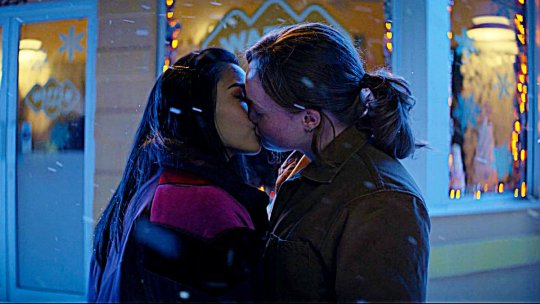
20: Let It Snow (dir. Luke Snellin)
"Have you ever been with someone, and you stay up until like 4AM just talking about everything, and you're just like, I can't believe I get to exist at the same time as you?"
Okay, so let me explain myself on this one:
So yeah, it certainly is a generic teen romcom where everyone plays into basic teenage stereotypes, half the cast is clearly nowhere near eighteen, and all of the romance is oddly chaste. But there truly is something to be said about representation in a romcom, and after a thousand boring cis, straight, hetero couples falling in love for decades, this movie actually managed to hit a lot of notes that are at best rarely explored in the genre and also manages to probably sneak in some genuine firsts. While both the "tomboy/softboy" and "Latina struggling with her family" storylines have been done before, these are some nice, cute little iterations on those befitting a teen-friendly movie. But the Dorrie/Kerry story is not only legitimately groundbreaking, but also an absolutely perfect encapsulation of the types of problems that queer teenagers struggle with during that time of their lives. It's a queer romance, played by two actually not-straight people, with one of them being a nonbinary actor too. And it's not cordoned off into some bargain bin DIY indie that fell out the back of the truck on the way to an indie film festival; no, this is in a major holiday release, with well-known actors, and as one of the central storylines! Plus, it perfectly captures the woes of modern teen coming out, knowing that everything will probably still be cool, but the fear haunting you as all you can do is look jealously at someone who is out and proud. And it does it without being real shitty and horribly traumatic too. Eat your fucking heart out, Love, Simon!

19. John Wick: Chapter 3 -- Parabellum (dir. Chad Stahelski)
"Si vis pacem, para bellum!"
Another year, another John Wick movie. There's more plot; you don't care, and let's be honest, neither do I. Stahelski is here to serve up more badass characters and incredible action, and no one in Hollywood does it quite like him. It's got familiar action favorites demonstrating why they still remain supreme, with Yayan Ruhian, Cecep Arif Rahman, Tiger Chen, and the ever underrated Mark Dascascos. It's got surprising action showcases for Halle Berry, Lance Reddick, and somehow Boban Marjanović. It's got great character actors doing their thing, from the returning McShane and Fishburne to newcomers Saïd Taghmaoui and Anjelica Huston. It's got Asia Kate Dillon as an awesome nonbinary shadow organization asshole. It has a bewildering Jason Mantzoukas cameo. And above all else, it has Keanu Reeves, still demonstrating not only his incredible physical skill, but also how to perfectly utilize his particular acting style to create an iconic character.
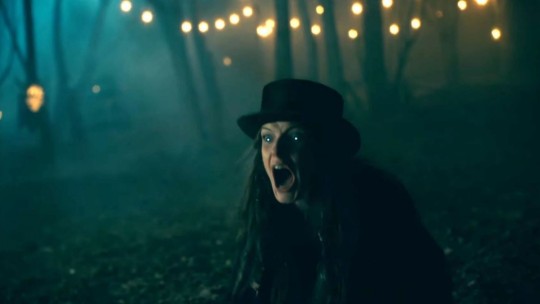
18. Doctor Sleep (dir. Mike Flanagan)
"Man takes a drink. A drink takes the drink. And then the drink takes a man."
While not the most accurate adaption, it might be the only Stephen King adaptation that comes to mind that actually successfully channels what makes him such an appealing author. King's stories have an inherent corniness to them and for as much as you unsuccessfully try to cover that up (look to this year's The Outsider for a good example), it's where the true charm of his work shines. It's what makes this so fun, because as much as an epic, eldritch terror is exciting, it still doesn't have the goofy fun of a bunch of vampiric bohemian drifters led by a Stevie Knicks knockoff in a top hat breathing up souls. Plus, the epic three hour runtime actually allows Flanagan to at least try to cover all the more subtle serious characterizations of Danny Torrance, from his recurring alcoholism to him seeking closure with regards to his parents. It manages to actually make the final act's nostalgia play kind of work, or at the very least get the terrible memory of the Ready Player One version out of my head.
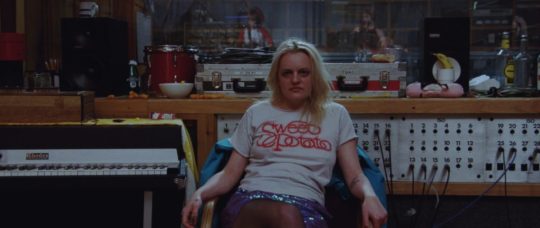
17. Her Smell (dir. Alex Ross Perry)
"I thought you were better than this, but deep down I knew you weren't."
Perry must have had some extra pent-up nastiness in him after having to restrain himself while writing Christopher Robin (by the way, that happened), because he really created one of the nastiest characters in cinema here. Her Smell is the equivalent of being locked in a room with the shittiest person you'll ever meet, as she constant lashes out at everyone and everything with the kind of delirium that the truly demented are cursed with. And credit to Elizabeth Moss where it's due: she really perfectly embodies such a horrible human being and proceeds beat you damn near to death with it during a majority of the runtime. Eventually it slows down and all of the problems become apparent once they script isn't flying by at a thousand words a minute. But Moss literally did her job so well that people fucking hate this movie because of her character, and if that isn't a testament to her acting talent than I don't know what is.
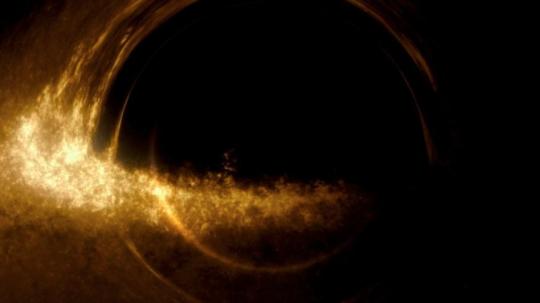
16. High Life (dir. Claire Denis)
"At 99% the speed of light, the entire sky converged before our eyes. This sensation, moving backwards even though we're moving forwards, getting further from what's getting nearer. Sometimes I just can't stand it."
Denis finally makes her English debut with what she does best: nauseatingly uncomfortable sexuality oozing from terrible people doing horrible things. In this case, she takes an innovative detour into sci-fi, setting up a decades-long story of human experimentation, murder, the horrors of space travel, and whatever unholy things are going on inside of the "Fuck Box". It has an appropriately dingy production design too; the clean retro-futurist spaceship design soon dissolves into a torn apart den of depravity, caked in a mixture of filth and dry blood. Pattinson once again manages to be likeable while also being extremely standoff-ish; only playing with his baby daughter do we seem to see him actually enjoy interacting with a human being. Kind of gets lost in the sauce near the end, but at least manages to land some surprising emotional notes considering the kind of horrors that they've shown up until then.
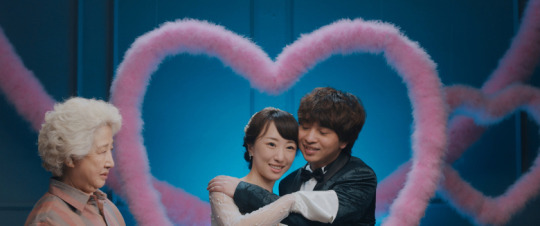
15. The Farewell (dir. Lulu Wang)
"Chinese people have saying: when people get cancer they die. It's not cancer that kills them, it's the fear."
Lulu Wang's followup to Posthumous is such a massive step up in talent it's not even funny. She manages to make such a wonderfully soulful and loving movie about impending death by utilizing near perfect comic timing to defuse a situation that threatens to stray too dark. Not to mention her point of view on modern China from a non state-sponsored eye actually captures a much more accurate shot of the country itself. It's almost as if an Edward Yang movie had set itself more modest expectations -- it's pleasant, goes down well, teaches you a couple of things about Chinese culture, and manages to do it all in only a hundred minutes. And Awkwafina manages to hold her own against far more experienced actors, even if you can tell her Mandarin is still a little spotty.
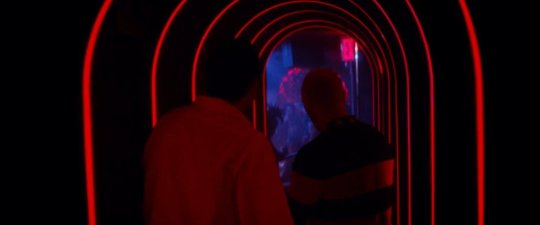
14. Uncut Gems (dir. Josh and Benny Safdie)
"I think you are the most annoying person I have ever met. I hate being with you, I hate looking at you... And if I had my way I would never see you again."
Adam Sandler's magnum opus performance -- there will never be another character that fully embraces every grating aspect of his style of acting and manages to weaponize them for two anxiety-inducing hours of hell. Sandler's Howard Ratner is an absolute sewer rat scumbag, an untrustworthy coward, and a perennial fuck-up of epic proportions. But he's still so charismatic and powerful on screen that you root for him every time he drives you further up the wall. And the Safdie brothers know how to keep him moving too, never letting the audience catch a breath of air for this movie-length panic attack as the odds stack further against Howard each minute. Whenever you see Sandler phoning in his comedies for fat checks, just remember this performance and how pretty much every awards committee completely ignored this film. No wonder he doesn't bother trying anymore.
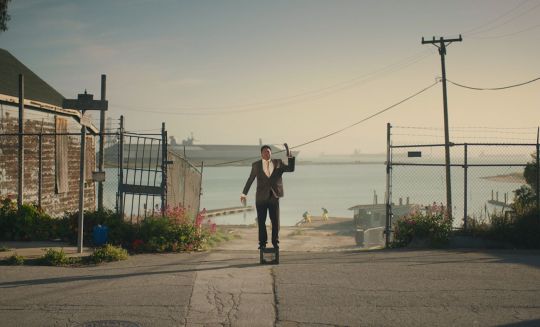
13. The Last Black Man In San Francisco (dir. Joe Talbot)
"You don't get to hate it unless you love it."
A wonderfully evocative love letter to a changing city that is so full of life in every way, from the vibrant movement of the camerawork to the bombastic and powerful soundtrack blasting throughout. But it actually plays more like a New Orleans' funeral march, a melancholic chronicle of the original denizens of San Francisco even as the city warps into the caricature that it's slowly becoming. There is a definite feeling that the aggressive gentrification is unavoidable and even the love of the original quirky denizens can only stave off the metaphorical steamroller that paves over the past. It makes for a wonderful counterpoint to the previous year's Blindspotting: both about young black men dealing with gentrification in the Bay Area, but Blindspotting starts as a very angry comic satire that eventually ends on a note of hope and a will to survive the changing tide, whereas this begins as a joyous celebration of the city and ends on a heartbreaking resignation in the face of everything. Both come from respectively very different sides of San Fran culture, but it's rather interesting seeing each have such different approaches to the same topic.
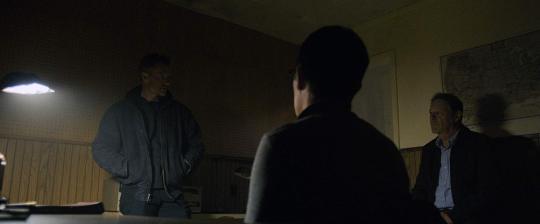
12. The Standoff at Sparrow Creek (dir. Henry Dunham)
"How do we know it's not you?"
A simple "pressure cooker" scenario done to perfection: one empty warehouse, a bunch of hardened standoff-ish militia men, a missing gun, a ticking clock, and a whole lot of suspicious side eyes and probing questions. It helps that the gruff suspects are a perfect who's who of roughened character actors, all previously well-versed in playing suspicious people, and all of them hiding the kind of unspoken rage that makes a man secretly join an armed militia. All of this told with a nerve-wracking minimalism and style as weirdly detached from reality as some of these men are. One hell of a debut for Henry Dunham and hopefully a sign of good things to come.

11. Booksmart (dir. Olivia Wilde)
"How about we play a *rousing* round of J'ACCUSE!"
Profoundly silly and yet also so disarmingly sweet, Olivia Wilde whips a wildly stylized portrait of Gen Z high-schoolers and the many ways that they vastly differ from their older peers. Certainly much more welcoming and accepting of the diversity of teenagers than pretty much any other teen movies from the past, although they still poke fun at some particular brands of modern "wokeness" too. Stuffed to the brim with wonderfully weird characters, between the lovable catty theatre duo of George and Alan, the cringe-inducing desperate rich kid Jared, the endearingly dumb thirstball Theo, the dorky and blissfully unaware queer-bait Ryan, the effortlessly cool and extremely "top energy" Hope, and the absolutely batshit wildness that is Gigi. But mainly it serves as a vehicle for Devers and Feldstein, with both bouncing perfectly back and forth off each other in moments of comedy and drama. Feldstein always pulls off huge laughs pretty much every line and Devers sells a perfect amount of baby-gay awkwardness in one of the sweetest (and heartbreaking) queer romance stories in film. But above all else, it's just so damn fun and aware of what teenagers are actually like than most movies ever have been.
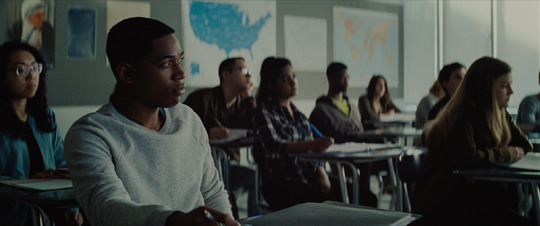
10. Luce (dir. Julius Onah)
*chuckles* "You really think I believe that stuff?"
One of the most wildly uncomfortable experiences in recent cinema history, but not due to any horrifyingly explicit graphic content being shoved in our faces. No, Onah and Lee created something much more discomforting: a constant challenging of all our biases and stereotypes, of us wanting to give chances and have faith in those that we trust. Kelvin Harrison Jr. delivers one of the best acting performances in recent memory because he's able to literally do everything; his Luce somehow manages to perfectly walk the tightrope required for a performance like his. With him behind it, Luce is such a charming, loving, likeable character but there's always just something that seems off about him. And even if Spencer's Wilson has a fixation on him that crosses all sorts of legal and moral boundaries, wouldn't we be cheering her on under different circumstances? In a way, she herself is trying to communicate a lesson about perception too, one that also mires in deep, troubling waters. Even if the film still feels very stage-y due to it's source material, the cold clinical aesthetic only further helps it make us squirm in our seats.
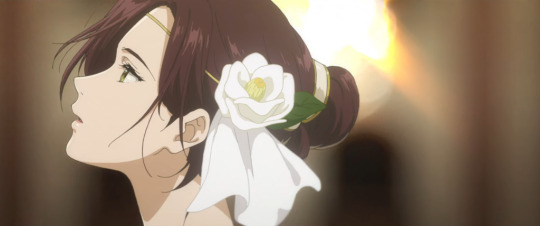
9. Violet Evergarden: Eternity and the Auto Memory Doll (dir. Haruka Fujita)
"Nobody wants a letter that cannot be delivered."
An absolutely magical experience that artistically excels over the original TV series it's based off of. The production is still as impressive as any other KyoAni work, but the composition and lighting in particular are outstanding, selling the social isolation of the first half and the childlike wonder of the second half. Beginning with a sublime Victorian romance in the first half, the story eventually morphs into a tribute to the workers of the world, the cogs in the machine. But in the context of the studio's recent history and the horrific arson attack that claimed 36 members of the studio, this instead comes off as a battlecry against the opposition against them. It's a story valuing those who are overlooked in the process of creation, a story about strong determined women, a story of a young girl defining her own future against society. KyoAni as a studio were most known for treating all their employees exceptionally as well as being a primarily female-led studio, both unfortunate exceptions in the industry as well as the target for a lot of unfair online hatred against them (and surely played some sort of role in why the arson attack happened to them specifically). To see the studio make their first post-attack work so proudly emblematic of what made them unique makes this so much more powerful than you would expect.
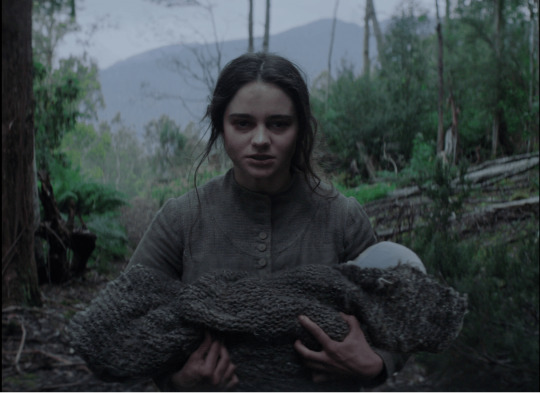
8. The Nightengale (dir. Jennifer Kent)
"You know what it's like to have a white fella take everything that you have, don't ya?"
The classic revenge fantasy narrative warped into a bleak, cynical portrait of racist cruelty in 1800s Tasmania. Jennifer Kent, improving leaps and bounds from the relatively straightforward Babadook, crafts a searing indictment of the foundations of colonialism and the misogynistic undercurrent of the barbarous society. It's a revenge movie where the vengeance is horrible and unsatisfying -- there's no crowd pleasing murderous money-shots, just brief moments of comeuppance in the face of everything in the world working against our two protagonists. Those who are squeamish should be aware that it is exceptionally graphic and grueling at times, although Kent does manage to keep up a very good pace for the two and a half hours of hell.
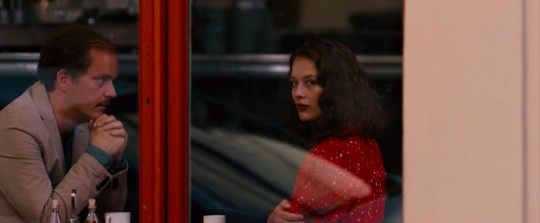
7. Transit (dir. Christian Petzold)
"They say that those who were left never forget. But it's not true. They have the sweet, sad songs. Pity is with them. Those who leave, no one is with them. They have no songs."
Hitchcock by way of Kafka -- a classic existential mystery told in a disorienting separate reality not quite like our own. It's a bold move to take a Holocaust set narrative and completely throw out the actual setting itself, but Petzold only enhances the weird themes of the story by taking it to a completely different but still very familiar time. This is a classic tale of becoming the person you say you are but really aren't -- then begging the question of what if you're not the only one also living a false identity. Buoyed by an excellent and very enigmatic lead performance from Franz Rogowski, who displays a tremendous skill for playing somebody so closed off but also very charismatic and watchable.
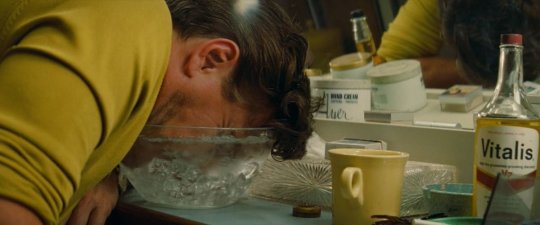
6. Once Upon a Time... in Hollywood (dir. Quentin Tarantino)
"When you come to the end of the line, with a buddy who is more than a brother and a little less than a wife, getting blind drunk together is really the only way to say farewell."
Tarantino trades in his B-movie worship and penchant for comical bloodbaths (well, for the most part) to make something I certainly didn't expect from him: a relaxed hangout movie about getting old and falling out of fashion. Exceptional production design whisks us away to the height of Hollywood and three different people all looking at their future careers in very different lights. Leo gets to stretch his wings in all sorts of silly fun ways and Brad Pitt finally lets go of the young superstar image and easily slips into his more natural "hot single dad" swagger, playing the most effortlessly cool character of his career. Tarantino sets aside time to look back on his own flaws as well and playfully reflects on his own particular ...quirks. Easily his best since his 90s prime and the first time in a long time I've felt the maturity that he showcased in Jackie Brown.
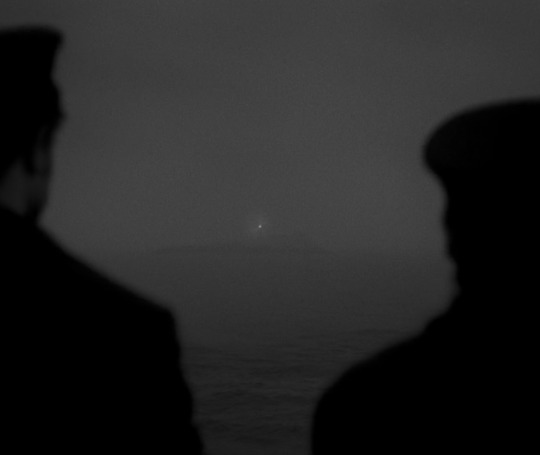
5. The Lighthouse (dir. Robert Eggers)
"Damn ye! Let Neptune strike ye dead Winslow! HAAARK!"
Hyper-masculine mania as told through a wonderful blend of dark comedy and cosmic horror and with some of the most lush black-and-white cinematography maybe ever in a film. Eggers' now trademark devotion to absolute accurate period detail in both visual design and dialogue greatly helps this reach transcendent heights. But it's truly the two performances of Dafoe and Pattinson that help it weave a perfect spiral of insanity that also manages to be so oddly fun. Never could there be any other paring of actors that would perfectly showcase these two dirty sea-dogs going stark raving mad at each other so well.
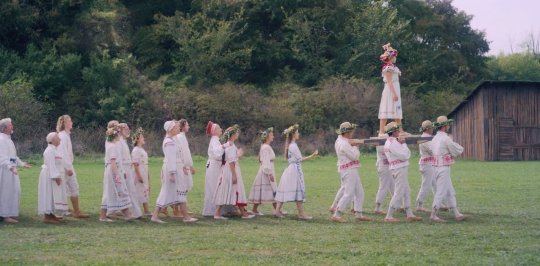
4. Midsommar (dir. Ari Aster)
"As Hårga takes, so Hårga also gives."
(Director's Cut) Every generation deserves their own paranoia-fueled pagan horrorshow, but Aster strikes a much deeper vein in his epic take on the classic territory The Wicker Man had previously claimed. The brutal rituals of the Hårga are only set dressing most of the time, with much more focus poured into the vile toxicity plaguing the relationship between students Dani and Christian. Reynor's Christian is such a perfect portrayal of a terrible influence -- he's charming, fun, and likeable when he's on your side, but the second anybody goes against him his seedy manipulation begins to seep into everything he says. Pugh continues her winning streak too, delivering a broken person desperately trying to put a smile on while falling apart on the inside as she realizes she truly is all alone in the world. While some might be disappointed by the lack of actual "terror" for a good chunk of the movie, Aster has found something much more likely to scar us than these friendly Swedish cultists.
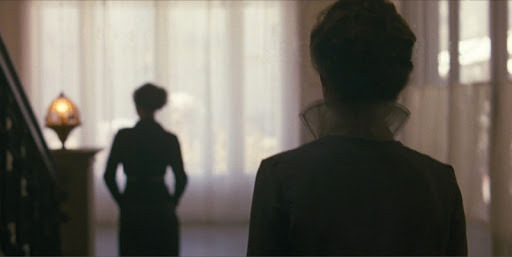
3. Sunset (dir. László Nemes)
"The horror of the world hides behind these infinitely pretty things."
After striking gold with Son of Saul, Laszlo Nemes takes a hard turn into a very different genre but manages to create a wonderfully unique spin on classic detective noir. His signature camerawork powers this yarn, successfully taking the claustrophobic eye of Saul and using it to give a truly immersive sense of place in the tumultuous world of 1913 Budapest, where danger is simmering under the surface and ready to boil over at any moment. After all, noir is always about the eye of the detective, so Nemes' style takes it to a literal degree where everything outside of Irisz' field of vision is incomprehensible. We catch the same shady sideways glances and hushed whispers at the same time she does too. The plotting, like all noir tales, gets a little too complex for its own good, although it's less because of double-crossing and deceit and more from the story slowly dropping its connection to reality to function on a far more allegorical level. But as far as immersive, experiential cinema goes, not even 1917 can stack up to this film's highs, as the enraged lower-class populace eventually comes for the heads of the bourgeoise and Irisz suddenly realizes she is in the very wrong place at the very wrong time.
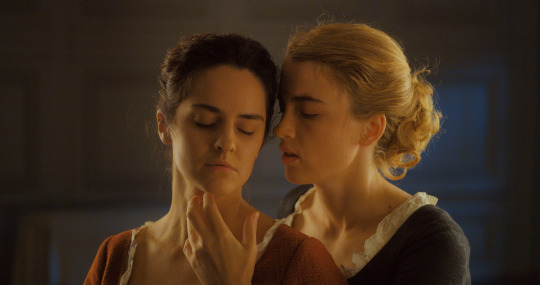
2. Portrait of a Lady on Fire (dir. Céline Sciamma)
"Do all lovers feel they're inventing something?"
An absolutely breathtaking portrait (hehe) of yearning and love, so astonishingly romantic and actually aware of what will make a woman swoon. Every technical aspect is perfect, from the gorgeous locale to the lovely windswept dresses to the soft, classical cinematography. But the true magic comes from Merlant and Haenel perfectly delivering every line of Sciamma's wonderous script. Those two have a sexual tension strong enough to burn down the theater, as their shy glances turn into deep longing stares and both their steely professional reserves give way to poorly suppressed joy at just being able to be with the other. Even their initial terse dialogue melts into pure romantic splendor, as they lovingly catalog all the little gestures the other does when flustered. Their connection during filming was powerful enough to fuel rumors around the two in the press and is currently providing the desire for every thirsty lesbian who finishes this to immediately pull up videos from the press tour and hunt for those same things between the actors themselves. And trust me, they are there.

1. Parasite (dir. Bong Joon-ho)
"Not 'rich but still nice.' Nice because she's rich, you know? Hell, if I had all this money, I'd be nice too!"
Very rarely does a film come along that actually warrants to be described as "perfect", as in one that literally generates no critiques in any way even if I was forced to pick something at gunpoint to complain about. But Parasite truly does every single thing right. Even Bong's tonal whiplash style, which does grate on me at times, somehow fits perfectly here as the schemes become increasingly madcap and the increasing sense that this will all come crashing down horribly mounts ever higher. Until then, it's an absolute joy to watch in every way, as Bong stacks the card deck higher and all the characters dive further into the sewer for their own benefit. The midpoint pivot works wonderfully too, as it goes to show that literally every person is getting played in the world of Parasite. It's massive success is only surprising to those who haven't seen it: it's the perfect movie for the era it came out in and may as well be the watershed moment for a new age of cinema where Hollywood finally admits that it's not the king of the world anymore.
#top 25#2019 in film#parasite#portrait of a lady on fire#sunset#midsommar#lighthouse#fuck capitalism
1 note
·
View note